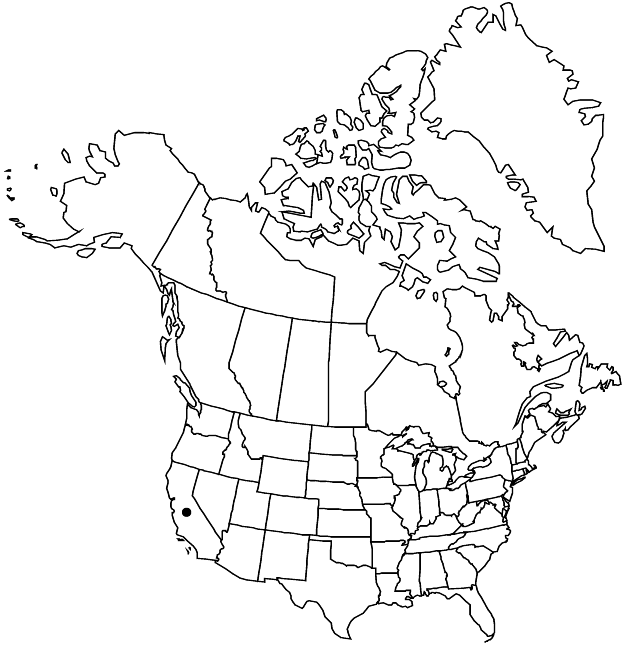Eriogonum umbellatum var. munzii
Aliso 7: 218. 1970.
Herbs, spreading mats, 1–3.5 × 3–6 dm. Aerial flowering-stems erect, 1–2 dm, mostly tomentose, without one or more leaflike bracts ca. midlength. Leaves in loose rosettes; blade elliptic, 1–2 × 0.5–1 cm, densely white-tomentose abaxially, floccose and greenish adaxially, rarely tomentose on both surfaces, margins plane. Inflorescences compound-umbellate, branched 2–4 times; branches mostly tomentose, without a whorl of bracts ca. midlength; involucral tubes 2–3 mm, lobes 1–2 mm. Flowers 3–8 mm; perianth bright-yellow.
Phenology: Flowering Jun–Sep.
Habitat: Sandy to gravelly flats and slopes, sagebrush communities, oak and montane conifer woodlands
Elevation: 1500-2600(-2900) m
Discussion
Variety munzii occurs mainly in the Transverse Ranges, basically along the edge of the Mojave Desert from southern Santa Barbara and northern Ventura counties eastward across southern Kern County to northwestern San Bernardino County, then south into portions of northern Los Angeles County (as far west as the Liebre Mountains). It is disjunct in the San Jacinto Mountains, Riverside County (where the leaf blades are tomentose on both surfaces) and the Laguna Mountains, San Diego County. It is the southwestern element related to var. subaridum, and the distinction between the two varieties is not always sharp. Variety munzii occasionally is seen in cultivation.
Selected References
None.
Lower Taxa
"dm" is not declared as a valid unit of measurement for this property."dm" is not declared as a valid unit of measurement for this property."dm" is not declared as a valid unit of measurement for this property."dm" is not declared as a valid unit of measurement for this property.
